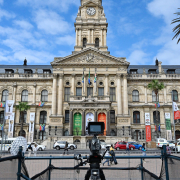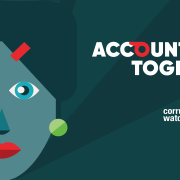|
Getting your Trinity Audio player ready...
|
By Kwazi Dlamini
According to the second edition of the African Youth Survey, released in July 2022 by the Ichikowitz Family Foundation, African youth is somewhat less optimistic about the future of the continent than they were two years ago, but they remain focused on achieving their personal ambitions and securing opportunities that will pave the way for future progress.
The foundation conducted the survey on 15 African countries, including South Africa, during the final stages of the Covid-19 lockdown, with the aim of understanding the position of young African people pertaining to the direction the continent is taking.
The survey looks at different aspects including the political landscape, environment, foreign relations and investment, media and connectivity, natural resources, effects of the Covid-19 pandemic, inequality, and unemployment.
China in Africa
The youth in the continent are concerned with foreign mining companies repeatedly being given rights to extract minerals over African companies, without any benefits to local communities. A significant 72% believe that their country’s natural resources can best benefit citizens if managed by local companies, while 24% feel that foreigners are best-placed to extract benefits for local people.
Youth are wary of foreign involvement in the continent – particularly China and former colonial powers. The influence of foreign leaders in Africa’s affairs remains a big concern for 69% of youth, especially with China fast becoming the most influential country in Africa. China has been strengthening its base in Africa through interest-free loans and infrastructure donations – however, according to the survey, young people in the continent see this seeming gesture of goodwill as a debt trap.
The big debate around the Chinese involvement in Africa has led to the East Asian country cancelling 23 interest-free loans to 17 African countries. Analysts believe that the move is forced by the fury around China engaging in debt trap diplomacy in Africa, giving out loans to countries they know will not be able to repay so that they can gain political leverage.
The youth in the continent fear that African leaders have allowed powerful nations to have a stronghold and the continent has turned into a pawn in a game between Beijing and Washington.
Furthermore, they see foreign powers as the second most significant drivers of change on the continent, and 28% say these outsiders are negatively impacting the lives of citizens in their countries.
Leadership in Africa
The IFF 2022 survey further reflects the lack of trust the youth has in African leaders because of rampant corruption and lack of accountability. Unabated corruption diminishes the optimism young people have for the continent. The survey shows that there is a declining perception among youth that their individual countries are moving in the right direction – this relates to issues like employment and job creation, political stability, improved healthcare services and equality. Across the board, young people on the continent show dissatisfaction with their government’s efforts in addressing these issues.
Only two in five young people in Africa trust their national and local political leaders to do the right thing. While this research shows that the optimism about the future of the continent has declined and youth are focused on their personal and entrepreneurial ambitions instead of relying on political leaders, they also believe that foreign investments will be a positive in this regard. Highlighting the distrust the youth has in African leaders, the survey shows that only one in three youth believe that the continent is headed in the right direction and four in 10 feel negatively about the future of the continent.
The survey also showed that African youth have a strong appetite for democracy, particularly African-style democracy. Most (53%) believe that Western-style democracy is not suited to the continent, while 39% have the opposite view. The equality of all citizens under the law is the most important democratic value, in the eyes of Africa’s young people, and only 52% believe their country treats everyone equally in this regard.
Covid-19 pandemic
Another big concern raised by youth in the survey is the continent’s handling of infectious diseases, specifically the Covid-19 pandemic that wreaked havoc across the globe for more than two years. Given the subpar standard of health facilities around the continent and the mis-education of the masses on infectious diseases, this posed a serious health threat for Africa. Four in 10 youth approved of their country’s handling of Covid-19, though the pandemic did leave a trail of destruction in developing economies and directly affected the youth. Young people joined the ever rising queue of unemployment which was exacerbated by Covid, and they are not optimistic that their leaders will turn the situation around soon.
South Africa in particular is grappling with the issue of rising numbers of unemployed – both youth and older people – and here too the pandemic worsened the situation. South Africans were dealt a further blow with rampant corruption relating to Covid relief funds meant to assist those financially affected by the pandemic, and corruption relating to funds for emergency equipment. This alone further raised the level of distrust in political leaders to the roof.
The youth in Africa also feel that leadership in the continent is not doing enough to level the playing field regarding equality, particularly with gender-based and ethnic discrimination still at high levels – 47% said they have experienced such discrimination.
They also have concerns about the protection of the LGBTQI+ community. Only seven countries in Africa have LGBTQI+ anti-discrimination laws and many still criminalise same-sex marriages. South Africa is known as the most unequal society in the world and young people do not feel confident that the government is doing enough to address the problem.
Terrorism and instability
The continent still grapples with the matter of terrorism and again the youth do not only believe that governments are failing to protect Africa from terrorism, they also believe that some governments fund these terror organisations. Terrorism has caused instability and security concerns in many countries on the continent, and 12% of respondents say they know someone who supports or has been approached by a terror group, or have themselves been approached.
Political instability is also a cause for concern and is the leading cause for the decline of Afro-optimism, and 75% of young people believe that political instability is holding Africa back. Interestingly, 49% of youth view military support from former colonial powers as a positive factor in their country.
Young people across the continent are certain that creating well-paying jobs and reducing government corruption should be on top of the list of priorities, for Africa to be progressive. The World Bank also indicated that unemployment has risen across the continent over the past decade, with a significant spike in unemployment between 2019 and 2020. Meanwhile, an African Union study contemplates even more job losses because of the Covid-19 pandemic moving forward.
The survey reflects the general dissatisfaction of young people in Africa, particularly with its leadership. The continent is rich in natural resources but continues to struggle to solicit foreign aid, and its people are poverty stricken because their leaders are failing to protect it from foreign exploitation. A good number of African countries fail to create a conducive environment for businesses and to attract foreign investments to boost their economy.
However, the survey also highlights the unflagging hope of young Africans that better days will come – eventually.








